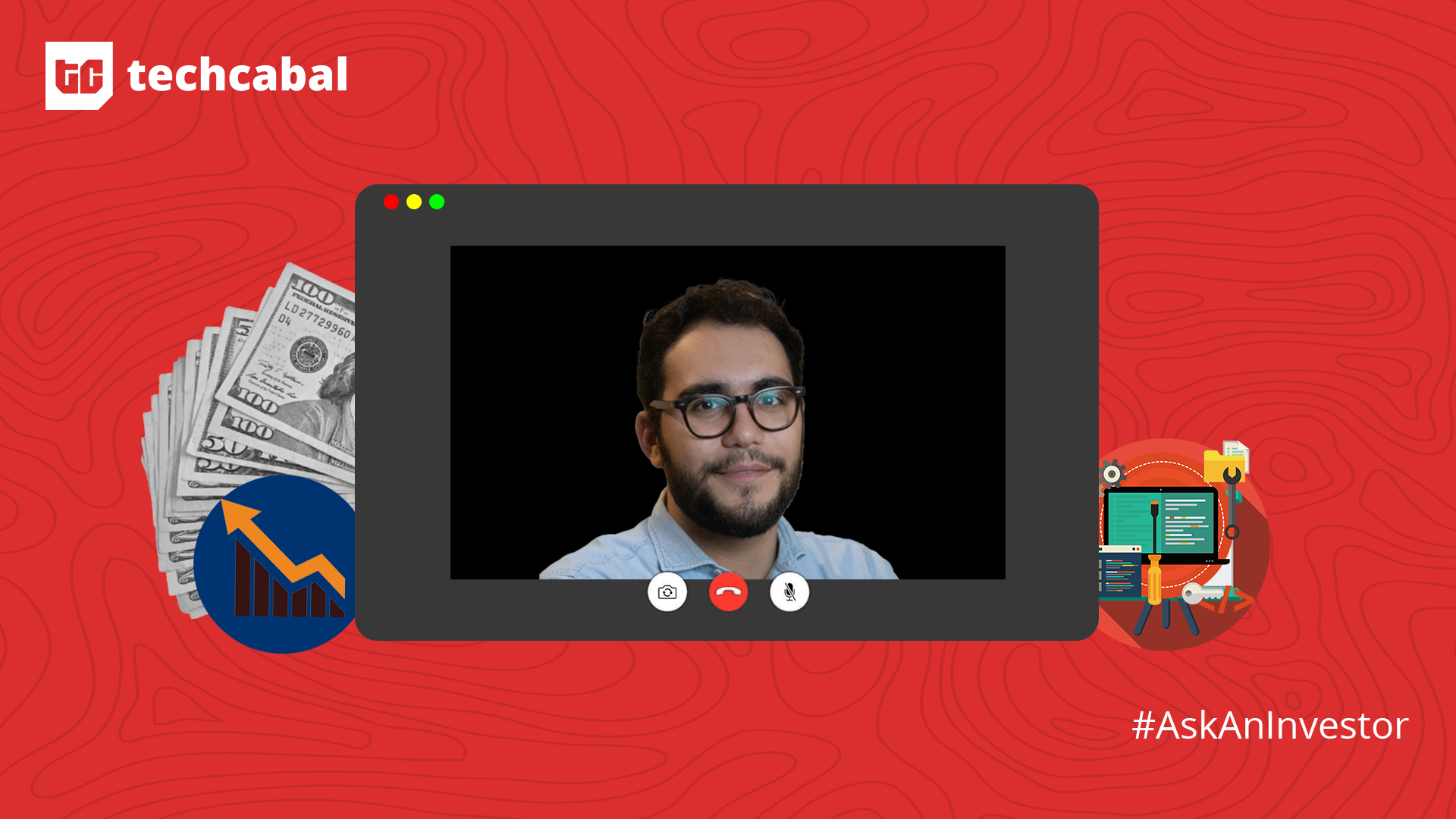In 2022, despite a global economic crisis and a dramatic slowdown in the venture capital landscape, African startups attracted $6.5 billion in funding, their highest ever recorded, according to the 2022 Partech African tech VC report.
Beyond this staggering $6.5 billion figure, a closer look at the different components that make up this figure reveals insights on Africa’s fundraising parade, the performance of different markets and sectors. For instance, investment in the fintech sector dropped by a whopping 40%.
“As you go one layer down into each of these data, you find fascinating insights about the ecosystem. People can miss a lot by just focusing on the headlines,” Tidjane Dème, a general partner at Partech, told TechCabal over a call.
Over a conversation with Dème, we took a closer look at the numbers as he explained why funding increased in 2022 despite the economic downturn, the rationale behind the reduction in funding in the fintech sector, whether the increase of funding in the cleantech sector is a fluke and his forecast for 2023.
Daniel Adeyemi: I’ll start with an obvious question. Why was there an increase in funding, despite the economic downturn?
Tidjane Dème: The increase is a bit nuanced because here we are talking about the total equity plus debt, which led to an increase of eight percent over the figures of 2021. And if you go by the recent trajectory of funding in Africa for the last four or seven years, an eight percent increase is not significant. From 2020 to 2021, the total funding went from $1.5 billion to $5 billion; the compounded aggregate growth rates have been at about 50% over the last few years. So an eight percent growth is relatively flat when we are talking about this market.
But if you look further, you’ll find that equity funding actually decreased slightly by six percent and the only reason we’ve seen the total grow is because of debt. Venture debt has more than doubled compared to last year, growing by 102%. And it’s an essential point because it seems startups are now more open to this new way of funding that is non-dilutive. It’s great news and ultimately the reason why the ecosystem is growing instead of decreasing.
DA: I know you hinted at it, but why the increase in debt funding?
TD: It’s an important point because if you look at the normal trajectory of startups, they start in a very risky position where the only way for them to fund their activity and their growth is through VC equity. But over time, once the product-market fit and operating model are validated, the startup starts showing stable growth. To fuel that growth, startups typically need much more cash not only to invest in technology and infrastructure; they also need working capital. This applies a lot in the fintech space, by the way.
It’s ideal to fund that working capital with debt without diluting the founders and all investors. But access to debt has been problematic. There are not enough players providing depth at the venture stage in Africa. And there’ve been very few startups that have reached the level where they could access that debt.
So what this increase in debt funding means is that more startups are reaching maturity levels where they can access this debt. In addition to this, these startups are also finding out that across the table there are more players providing debt. We hope 2022 is not a fluke and that it’s a trend that continues.
DA: Larger investment rounds ($100m and above) decreased last year. Why?
TD: 2021 was an outlier because global investors were going around signing very big cheques everywhere. And then when the downturn hit, most of them refocused their activities in their core markets. This means that those large tickets disappeared, which had an impact on many countries. Nigeria, for instance, in 2021 had six deals above $100 million, which accounted for $1.1 billion out of the 1.8 billion that was raised by startups in Nigeria.
In 2022, there was only one deal above $100 million from Nigeria, but it’s important to note that there were more transactions in Nigeria, so the transaction count went from 185 to 189. It’s just these big deals disappeared, which means total funding in Nigeria went down from $1.8 billion to $1.2 billion.
While it may sound drastic, it’s just a few very big deals that disappeared. Notably, in countries where there weren’t mega deals the total amount of fundraising increased in those markets.
The total amount of funds raised in Egypt grew by 20% from $650 million to $756 million; in Kenya, it increased from $570 million to $758 million. So even if you take out the big deals, the ecosystem has been growing.
We can also look at it from the angle of sectors. The fintech sector accounted for 69% of the deals made in Africa in 2021.
With the absence of those mega deals, the total funding to fintech startups fell from $3.2 billion in 2021 to $1.9 billion in 2022, decreasing by 40%. But at the same time, other sectors such as funding for cleantech grew by 347%, ecommerce grew by 125%, enterprise grew by 110%, and mobility grew by 87%. So you can see that the ecosystem is still growing, it’s just that those big deals disappeared.
Also, if you look at tickets of less than a million dollars to about $20 million, you will see the ecosystem has been growing in terms of transaction count, and in terms of the total amount deployed.
DA: Investment in fintech dropped by 40%. Why?
TD: I’d like to state that for the purpose of this report, companies that we categorise as fintech are companies whose core business is fintech. It’s true that many companies have a fintech component—for instance, B2B ecommerce companies like Trade Depot, have a fintech component, but we don’t regard them as a fintech company.
Despite the drop in investment, fintech is still king. It’s the most attractive sector because the “fintech flywheel”, as we often say, is complete. This means that fintech deals have gone from the seed round all the way to growth stage and exit. So as an investor, you know that if you invest in fintech, you have a sense of how it’ll play out. This is not yet proven, for instance, in mobility or in edtech. So it is normal that fintech keeps attracting more investment and more investors.
Also what we’re seeing here in the downturn is, all sectors are also going through the same stages that fintech went through. They’re just lagging behind.
I’m not saying there will be any one sector that’ll take over from fintech because even if you look at very mature markets in the US and Europe fintech is still king. But we expect that other sectors grow and take a larger part of the whole investment part.
With that said, I’ll say that the performance of fintech in 2022 was Unusual. I don’t think this will hold up in the coming years, but the trend that other sectors are catching up should hold up.
DA: Cleantech had an amazing year driven by a few mega deals. Is that a fluke?
TD: No. If you look back at our report in 2017, there was a surge back then in pay-as-you-go solar services and they accounted for the bigger part of the whole investment space in 2016 and 2017.
But then they disappeared and we didn’t hear from them for a few years. Now, this happened not because these types of startups lost their appeal but because they switched to a different funding mechanism because people realised quickly that these companies were raising a lot of money to fund equipment and infrastructure.
And you should not fund that with VC money. What they should have done is to create a vehicle on the side, where you can raise debt or where you can securitise this, but you don’t put that funding in the same structure. So that’s why they disappeared, but these companies have been around.
What is noteworthy this time around is that the new class of cleantech startups are different. This new class of cleantech companies are more in line with the times of what’s going on in terms of the drive to invest in impact in environmentally friendly technology or technologies that enable more environmentally friendly policies. It is not just solving energy for poor Africans in the village who needed solar power, it’s really about clean tech on a global stage.
There are a few mega deals like d.light and Sunking. Outside of these deals, there were 50 deals that were less than $100 million. This means it’s not just a few deals driving the narrative. Also, in terms of the number of deals, cleantech went from 20 deals in 2021 to 43 deals in 2022.
DA: Outside the big four countries in Africa, Ghana, Algeria, Tunisia, and Senegal seemed to perform well. What does this imply?
TD: When I typically look at these things, I look at the total number of deals, not the amount because it signals activity in the country. And if you look beyond the top-level number, there are about six other markets that have seen 10 deals or more. These markets include Senegal, Ghana, Morocco, and Tunisia. Cote d’Ivoire also is coming up.
What this implies is that these countries are the next markets to track. A lot of them are French-speaking countries because the francophone markets have been underserved for a while, so we expect them to catch up.
Algeria was an outlier because there was this one deal: $150 million raised by Yassir. It’s important to note that when a very big deal happens in the market, like what happened in Algeria in 2022 and what happened in Senegal in 2021, it clearly signals to everybody that you can build a big valuable business in that market. And what happens typically after that is that investors take more interest in the market. You see more deals happen in the market. Clearly, Senegal benefited from that Wave investment because, all of a sudden, Senegal went from having two to three deals per year to 15 or 16 deals.
We look at it as a very good signal that it is possible to build a large business in this market. It means you have a deep market, a talent pool, and a business environment that’s not completely prohibitive.
I’m happy for Algeria because it was not on the map at all. Over the last five years, the total deal count in Algeria was five, which includes the one deal in 2022. To put that in context, Morocco has seen 55 deals in the last five years, Ghana has seen, Ghana 85, and Senegal about 43 deals.
DA: Gender diversity growth appears to be flat. What’s happening?
TD: It is. I call it the depressing part of the report every year. I don’t think tech compares favourably to other sectors because it is a known fact that in Africa, the percentage of companies started or run by women is actually usually higher than in more mature markets. But this isn’t the case in tech.
This means that the fact that it’s been flat for the last few years probably hints at something, a fundamental cause, that needs to be unlocked. This is because the ecosystem has been making a lot of effort to increase diversity. Women have gone to create the right groups, we now have a few funds dedicated to female entrepreneurs, there’s been a lot of advocacy, and a lot more emphasis put in the VC space on funding women founders. And it’s still not moving the needle. So it means we have to do more than what we’re doing.
It probably correlates to lower female involvement in STEM or the correlation between women having technical skills and starting companies. These two need to come together for us to see more women-led startups founded.
We need to continue removing the bias in the ecosystem because tech investors have been mostly men-lead teams. Now everybody has been making some effort to balance this out; lot of the VCs are hiring more women to run their operations in Africa.
In all, the reason is probably deeper and people need to dig further and find out.
DA: Looking ahead, what do you expect to happen in 2023?
TD: Last year was difficult for everybody across the board; the deal flow was low because a lot of companies chose not to raise in this environment. It means there is a lot of pent-up demand for capital that we hope will drive better deal flow this year. Investors who are holding out, waiting for the market to land somewhere to know where the valuations will adjust, by now have had enough time to know this and should be ready to deploy.
We expect 2023 to be better in terms of the number of transactions. I don’t know what it will look like in terms of the amount of funding; this is impacted mostly by downturns. We say, among investors, that this is a very good environment to deploy capital because the companies are cheaper. Many startups have gone through a few quarters of economic downturn and most of them have adjusted in terms of efficiently running their businesses and using the capital. So it means cheaper and better companies.





















